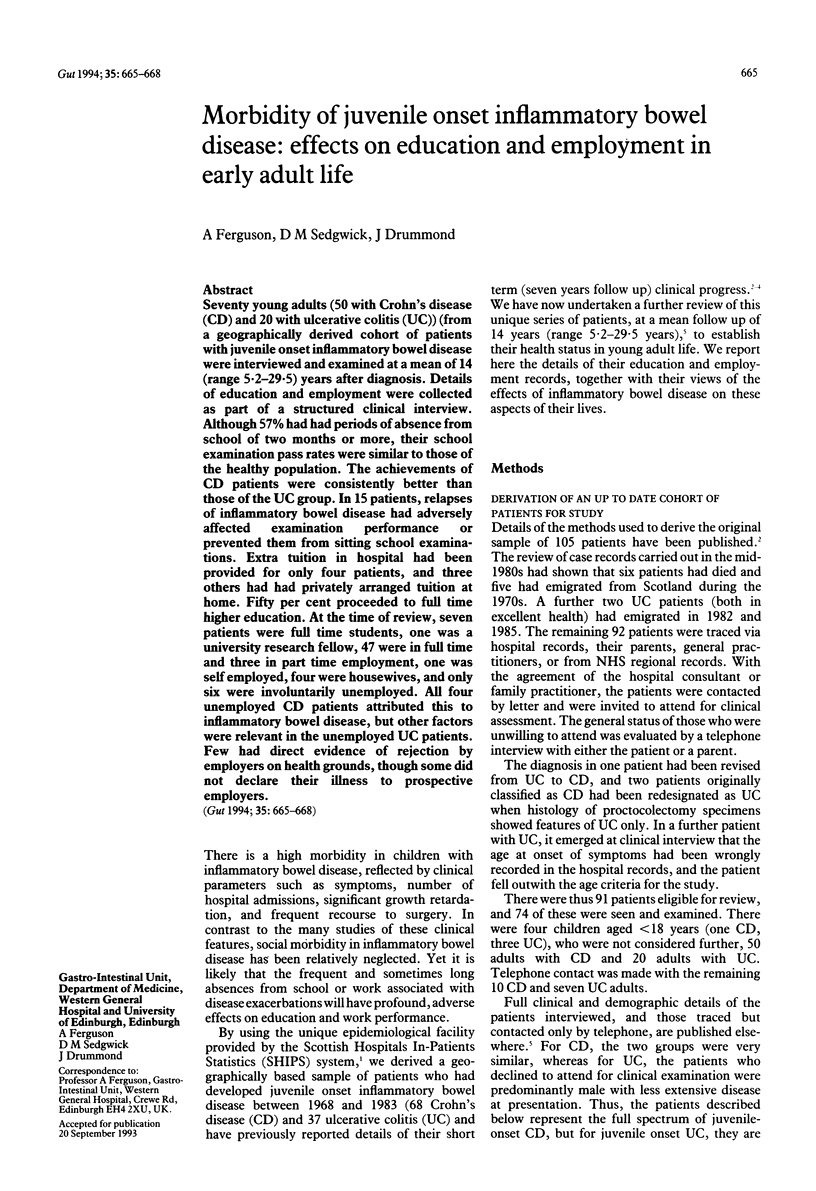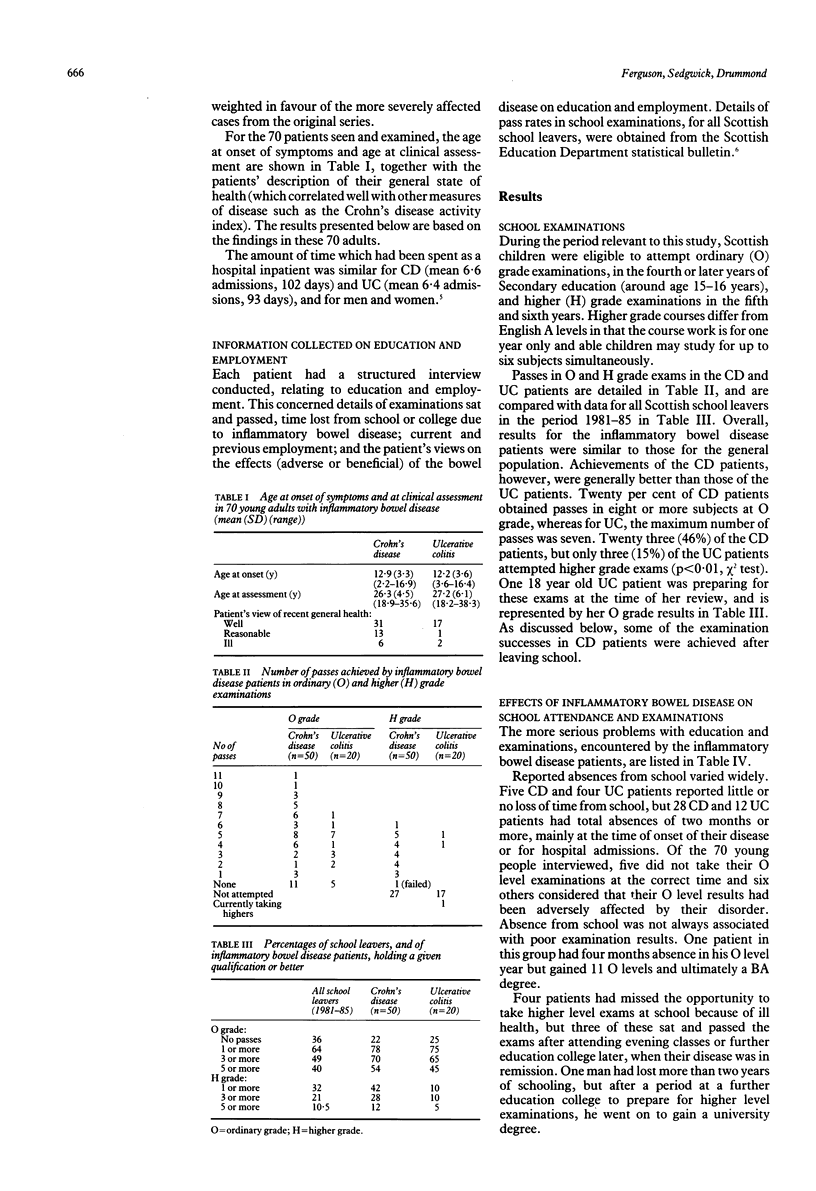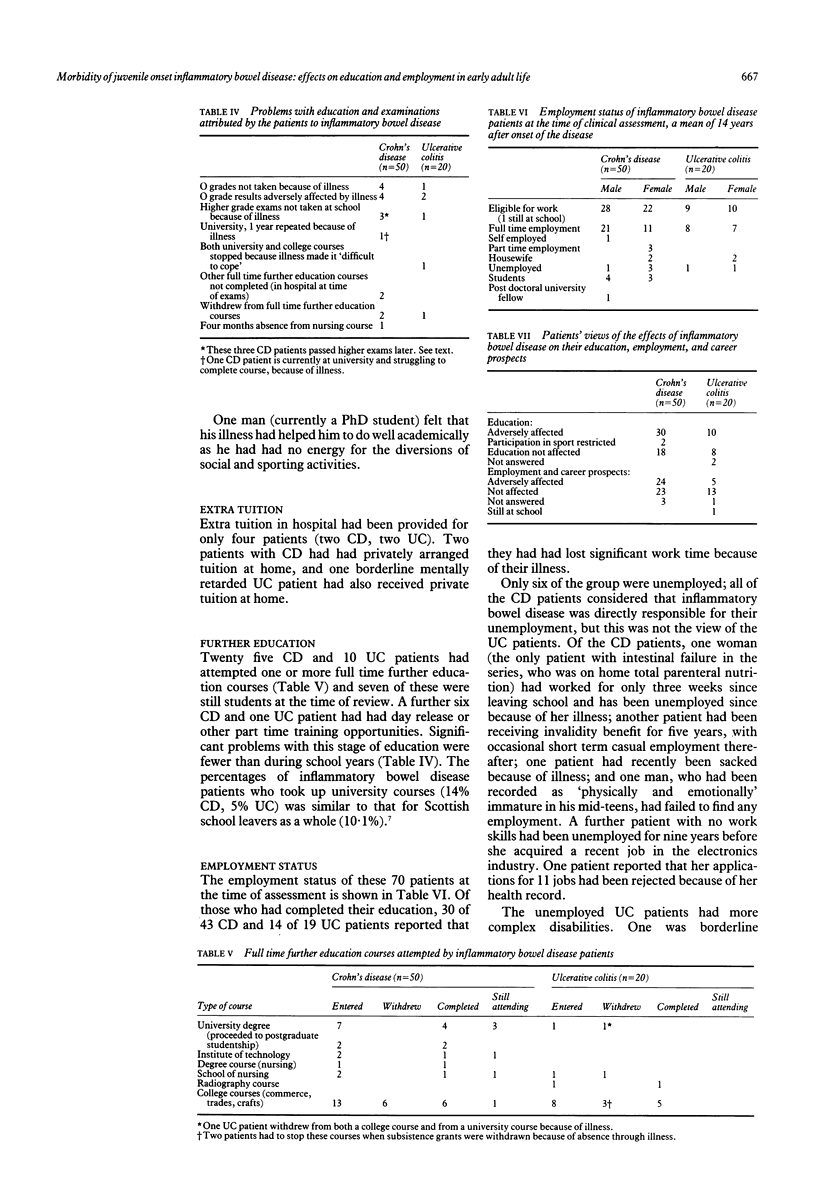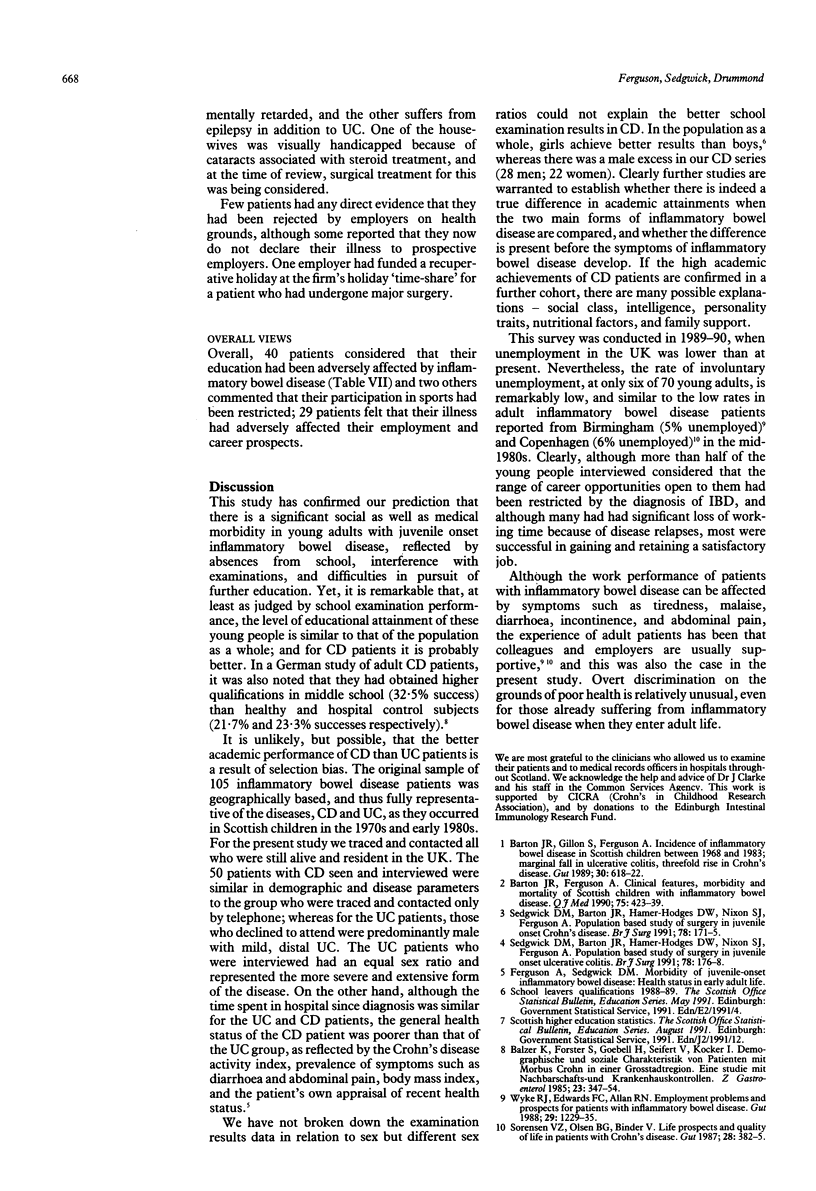Abstract
Seventy young adults (50 with Crohn's disease (CD) and 20 with ulcerative colitis (UC) (from a geographically derived cohort of patients with juvenile onset inflammatory bowel disease were interviewed and examined at a mean of 14 (range 5.2-29.5) years after diagnosis. Details of education and employment were collected as part of a structured clinical interview. Although 57% had had periods of absence from school of two months or more, their school examination pass rates were similar to those of the healthy population. The achievements of CD patients were consistently better than those of the UC group. In 15 patients, relapses of inflammatory bowel disease had adversely affected examination performance or prevented them from sitting school examinations. Extra tuition in hospital had been provided for only four patients, and three others had had privately arranged tuition at home. Fifty per cent proceeded to full time higher education. At the time of review, seven patients were full time students, one was a university research fellow, 47 were in full time and three in part time employment, one was self employed, four were housewives, and only six were involuntarily unemployed. All four unemployed CD patients attributed this to inflammatory bowel disease, but other factors were relevant in the unemployed UC patients. Few had direct evidence of rejection by employers on health grounds, though some did not declare their illness to prospective employers.
Full text
PDF



Selected References
These references are in PubMed. This may not be the complete list of references from this article.
- Balzer K., Förster S., Goebell H., Seifert V., Köcker I. Demographische und soziale Charakteristik von Patienten mit Morbus Crohn in einer Grossstadtregion. Eine Studie mit Nachbarschafts- und Krankenhauskontrollen. Z Gastroenterol. 1985 Jul;23(7):347–354. [PubMed] [Google Scholar]
- Barton J. R., Ferguson A. Clinical features, morbidity and mortality of Scottish children with inflammatory bowel disease. Q J Med. 1990 May;75(277):423–439. [PubMed] [Google Scholar]
- Barton J. R., Gillon S., Ferguson A. Incidence of inflammatory bowel disease in Scottish children between 1968 and 1983; marginal fall in ulcerative colitis, three-fold rise in Crohn's disease. Gut. 1989 May;30(5):618–622. doi: 10.1136/gut.30.5.618. [DOI] [PMC free article] [PubMed] [Google Scholar]
- Sedgwick D. M., Barton J. R., Hamer-Hodges D. W., Nixon S. J., Ferguson A. Population-based study of surgery in juvenile onset Crohn's disease. Br J Surg. 1991 Feb;78(2):171–175. doi: 10.1002/bjs.1800780212. [DOI] [PubMed] [Google Scholar]
- Sedgwick D. M., Barton J. R., Hamer-Hodges D. W., Nixon S. J., Ferguson A. Population-based study of surgery in juvenile onset ulcerative colitis. Br J Surg. 1991 Feb;78(2):176–178. doi: 10.1002/bjs.1800780213. [DOI] [PubMed] [Google Scholar]
- Sørensen V. Z., Olsen B. G., Binder V. Life prospects and quality of life in patients with Crohn's disease. Gut. 1987 Apr;28(4):382–385. doi: 10.1136/gut.28.4.382. [DOI] [PMC free article] [PubMed] [Google Scholar]
- Wyke R. J., Edwards F. C., Allan R. N. Employment problems and prospects for patients with inflammatory bowel disease. Gut. 1988 Sep;29(9):1229–1235. doi: 10.1136/gut.29.9.1229. [DOI] [PMC free article] [PubMed] [Google Scholar]


